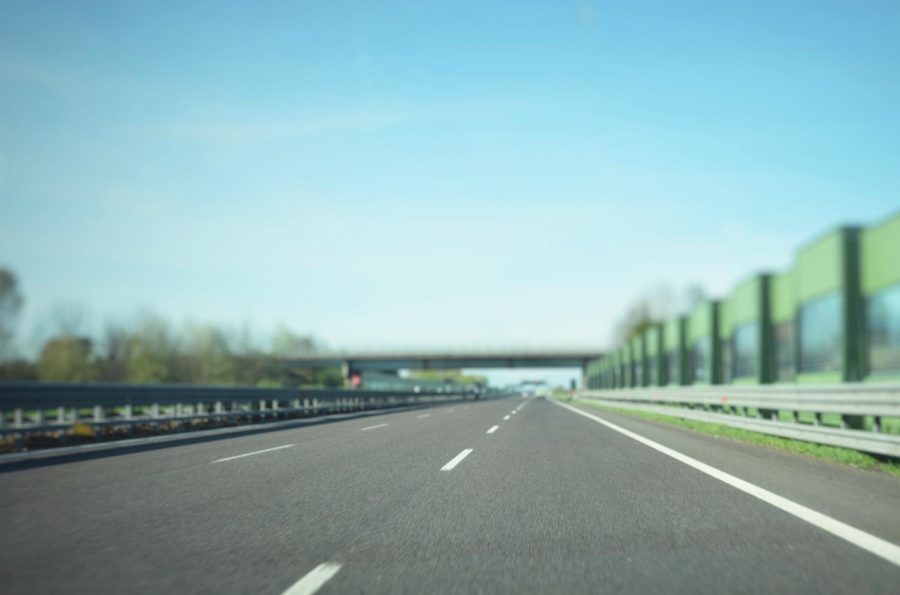Lezaic: Utah’s I-15 Expansion Sacrifices West-Siders
March 22, 2023
As we bear witness to Utah’s extreme population boom, we find ourselves at the whim of government officials’ prioritization of economic growth. In an ill-devised attempt to reduce traffic, the Utah Department of Transportation proposed an expansion of I-15. Despite UDOT’s claims that they only want what’s best for people, this project would irresponsibly jeopardize our environment and our state’s most marginalized communities.
The I-15 expansion project would take approximately $1.6 billion and last until about 2050. Although there are alternatives floating around, funding has already been approved by the Utah State Legislature.
Regardless of which plan UDOT chooses to enact, the expansion will create a larger problem.
Highway expansions are counterproductive. “There’s been decades of evidence showing that expansion of freeways and highways have incentivized car use and have diminished returns in shortening commute times for drivers,” said Meisei Gonzalez of HEAL Utah. “Instead, it results in an increase in traffic and air pollution.” This happens through induced demand, also called the induced travel effect, a phenomenon that shows every increase in highway capacity will create an equal increase in traffic.
“I think the main interesting thing is why UDOT would do this,” said Deconstruct Salt Lake‘s creator, who wished to remain anonymous. “They are clearly thinking about transportation as a means of capital flow. So they are thinking, ‘How do we make sure that workers and freight move as unhindered as possible through the Wasatch Front as a way of allowing this economic growth to continue happening?’”
The added pollution from an I-15 expansion would affect West-siders most. “Historically, for the West side of Salt Lake City, there have been a lot of policies put in place where it’s almost surrounded by highways as of right now,” said Gonzalez. “So we have I-15, which goes from south to north and then we have the I-215 going from east to west, and then new highways like the Mountain View Corridor and Bangerter Highway, which are all primarily in West side areas and in West side communities.”
West-siders in the Salt Lake Valley have the worst air quality in the entire state. As a result, they also have some of the worst health conditions. “We’ve seen more and more research showing that these concentrations are hitting more low-income communities and primarily Black, Indigenous and Latino communities,” said Gonzalez. “This has a variety of linkages to some policies such as redlining, highways being at closer proximity and even the type of work available in west side communities.”
UDOT is initiating an environmental study of the expansion’s consequences. But with pressing issues like the construction of the Inland Port and the shameful neglect of the Great Salt Lake, it’s clear our government does not prioritize the well-being of west-siders. Why trust their findings?
DSL’s creator agreed that the study seems to be a way of placating people. “I’ve worked in a more professional capacity in doing environmental reviews in the past, and to be frank, it’s a joke. It’s not real.”
“I don’t think that the conclusion of the environmental assessment could ever be, ‘The harm will be too great, let’s not move forward.’ The point of the environmental assessment is always, ‘How do we continue to do this? How do we make it seem like we’re trying to do it not as bad as it otherwise would be?’”
Additionally, West-side residents rightfully fear displacement. Proponents of the expansion pose the environmental impact report and community comment sessions as reasons not to get ahead of themselves. But west-siders have enough experience fighting off displacement to know where this project will inevitably lead.
Once again, the growth of Utah’s economy comes at the expense of its most marginalized communities — communities that have spent decades putting down roots and building relationships.
“It seems there’s always this threat of something looming, so to have something big like this come is definitely stirring up a lot of emotions, a lot of frustrations,” said Sara Hoy of NeighborWorks Salt Lake.
These communities have faced gentrification for years. Now they must worry about this additional form of displacement.
“They’re sacrificing the working-class neighborhoods,” said the DSL creator. “They’re not looking to fold them into some larger capitalist city. They just want to make it work for the regional economic growth trend.”
Gov. Spencer Cox said that, if displaced, the families will be compensated.
“How much money do you have to be paid to lose your home?” asked the DSL creator. “Is this general compensation going to be enough to buy another house? And it doesn’t even consider renters, most likely. These payouts go to property owners.”
No amount of compensation is enough for lost community ties, disrupted lives and the feeling of knowing you’re disposable. Amid Utah’s affordable housing crisis, the idea of adequate compensation is dubious.
Rather than building onto freeways, the $1.6 billion would be better used for tearing them down and expanding access to public transportation, but these possible solutions must be carefully implemented. Burying the highway — a solution that NeighborWorks is in the early stages of looking into — would make way for more green space and walkable and bikeable areas. It would also help with connecting East- and West-side communities.
As for improving public transportation, we must be careful to prevent further gentrification. “When we do work against car infrastructure and for public transit and walkable neighborhoods, it needs to be done with a massive eye towards anti-gentrification and current neighborhood empowerment,” the DSL creator said. “Because when you just focus on creating a nice space and you don’t specify who that nice space is being made for, it ends up being made for the upper class and for capitalist reinvestment.”
All three interviewees were clear in saying solutions need to be community-focused and community-led. We need to stay engaged and stand against the obvious disregard UDOT’s proposed expansion holds for the well-being of west-siders.









Begging for change • Apr 5, 2023 at 9:17 pm
This disturbs me. You are right…we already are focus and fighting the inland port and what has been done to the Great Salt Lake. I hope the talking heads stop talking and listen. We did wrong by hiring Cox. I’ve been consistently disappointed that he does not fight for marginalized people. Research show, we already lose two years off our lives because of the pollution which is not thriving and is not a healthy ecosystem AND it is not getting better without taking stock in our environment.
Andre Montoya • Mar 27, 2023 at 12:33 pm
It’s crazy to me that cities with huge traffic problems like Austin and Los Angeles exist, and yet officials still think the “just one more lane” solution works.